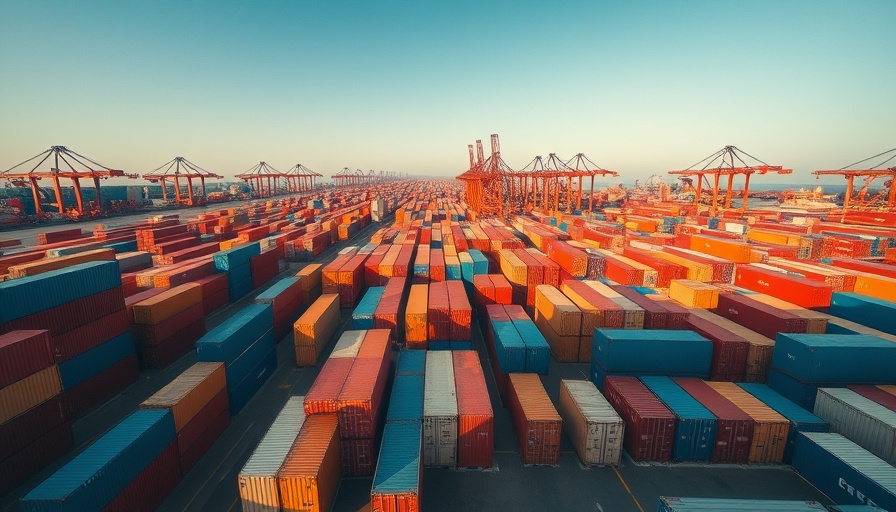
Understanding Product 'Washing': A Growing Tactic
In the complex world of international trade, some Chinese exporters are reportedly leveraging a tactic known as 'washing'—where products are routed through third countries to obscure their origins—especially to circumvent tariffs imposed by the Trump administration. This practice raises significant questions around compliance and ethical business operations, particularly for franchisors intent on maintaining brand integrity.
Why Are Companies Turning to 'Washing'?
This trend largely stems from the escalating trade tensions and tariffs between the U.S. and China. As tariffs were raised, businesses sought to avoid extra costs by shipping goods through countries like Vietnam and Taiwan. By re-labeling products, they can present them as local or from countries with lower tariffs, making them more competitive in the U.S. market. This creates a challenging landscape for franchisors who wish to uphold operational consistency and brand authenticity.
Implications for Franchisors
For franchisors, the challenges extend beyond compliance. The potential reputational damage from being associated with unethical practices can lead to brand inconsistency. Ensuring your supply chain has integrity is crucial, especially as consumers increasingly value transparency. Strategies need to focus on selecting vetted suppliers who adhere to ethical practices while also complying with international trade laws.
Parallel Insights from Industry Leaders
A parallel example can be observed in the food industry, where brands have faced backlash due to opaque sourcing practices. For instance, major franchises that underwent challenges due to unverified supplier claims have taken strides to enforce stricter supplier audits. It’s a reminder that operational excellence depends on thorough vetting and consistent monitoring of suppliers, particularly in an era of increased scrutiny.
Future Trends in Supply Chain Management
As globalization continues to evolve, the future of sourcing practices might see a significant shift towards blockchain technology to enhance transparency. With advancements such as these, franchisors can ensure product origins are traceable, thereby boosting consumer trust and compliance with both local and global regulations.
Practical Tips for Franchisors
To navigate this landscape, franchisors should consider implementing a few key strategies: 1) Conduct regular audits of your supply chain to verify product origins. 2) Embrace technology that provides transparency and traceability of sourcing. 3) Train franchisees on compliance standards to ensure brand consistency across all locations. These steps will not only mitigate risks related to reputation but also bolster operational efficiency by fostering strong relationships based on trust.
Ultimately, understanding the implications of tactics like product washing is crucial for franchisors. By adapting and implementing strategic measures, they can maintain their brand integrity and operational efficiency in a rapidly changing global market.
As #franchisors adapt to evolving trade regulations, it is more important than ever to evaluate your supply chain practices. Consider reviewing your operational strategies today for a more transparent tomorrow.
 Add Row
Add Row  Add
Add 






Write A Comment